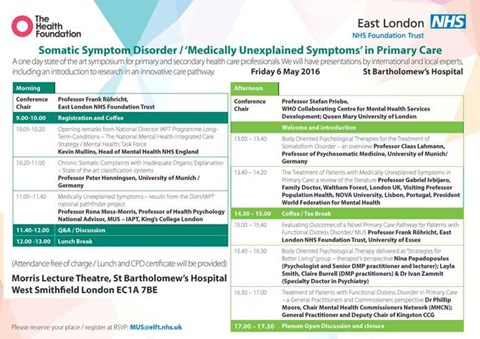Overview Teaching and Training Primary Mental Health Care
The teaching materials have been developed according to a curriculum that was collaboratively agreed between Primary Care GP Mental Health leads in East London (Dr. Rhiannon England, Dr. Judith Littlejohn and Dr. Lise Hertel), a senior people participation lead from ELFT (Paul Binfield), the Director of Nursing from ELFT (Professor Jonathan Warren) and Professor Frank Röhricht, Associate Medical Director ELFT, who is leading the ongoing / evolving project work for this site. The project was funded by the Health Education North Central and East London (HENCEL) and supported by Dr. Geraldine Strathdee, National Clinical Director Mental Health, NHS England.
East London NHS Foundation Trust (ELFT) is committed to developing integrated mental health care pathways across traditional primary and secondary care boundaries. One of the main priorities identified in achieving this goal is related to enhancing the knowledge and skill base for primary care practitioners on recognition, diagnosis, treatment and care pathways of psychiatric disorders. This programme was put together by clinical experts in partnership with service user representatives in order to ensure a strong emphasis on social inclusion through adherence to recovery care principles.


